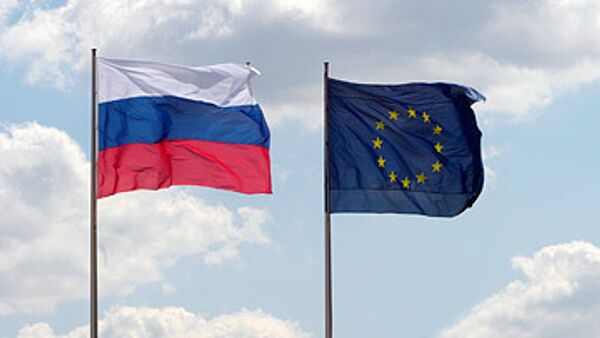Different positions held by Russia and the European Union on the Energy Charter do not affect the preparation of a new pact between Moscow and Brussels, Russian Foreign Minister Sergei Lavrov said on Tuesday.
The current Russia-EU agreement expired in late 2007, but was automatically extended. Talks on a new deal have been repeatedly delayed, initially by Poland and Lithuania and then over Russia's conflict with Georgia over South Ossetia in August 2008.
"Russia's waiver of the Energy Charter, actually our non-participation in the agreement to the Energy Charter, does not impede negotiations on a new basic agreement. Likewise, the situation in Abkhazia and South Ossetia does not impede this process," Lavrov said.
Russia recognized the former Georgian republics of South Ossetia and Abkhazia as independent states on August 26, 2008, two weeks after the end of a five-day military conflict that began when Georgian forces launched an attack on South Ossetia.
Lavrov said that the EU initially reacted emotionally to a brief war between Russia and Georgia over South Ossetia in August 2008 as it halted talks on a new basic agreement with Russia but later decided to resume the negotiation process.
"As for the Energy Charter, and energy cooperation in general, Russia, while not being a participant in the Energy Charter, is convinced in the need to draft a new international and legal base of energy cooperation," Lavrov said.
Russia has so far refused to ratify the existing European Energy Charter, which governs energy relations between 53 countries and organizations. In April 2008, Russian President Dmitry Medvedev proposed a new energy pact, saying the current charter fails to balance the interests of producers, transit countries and consumers.
MOSCOW, January 12 (RIA Novosti)




